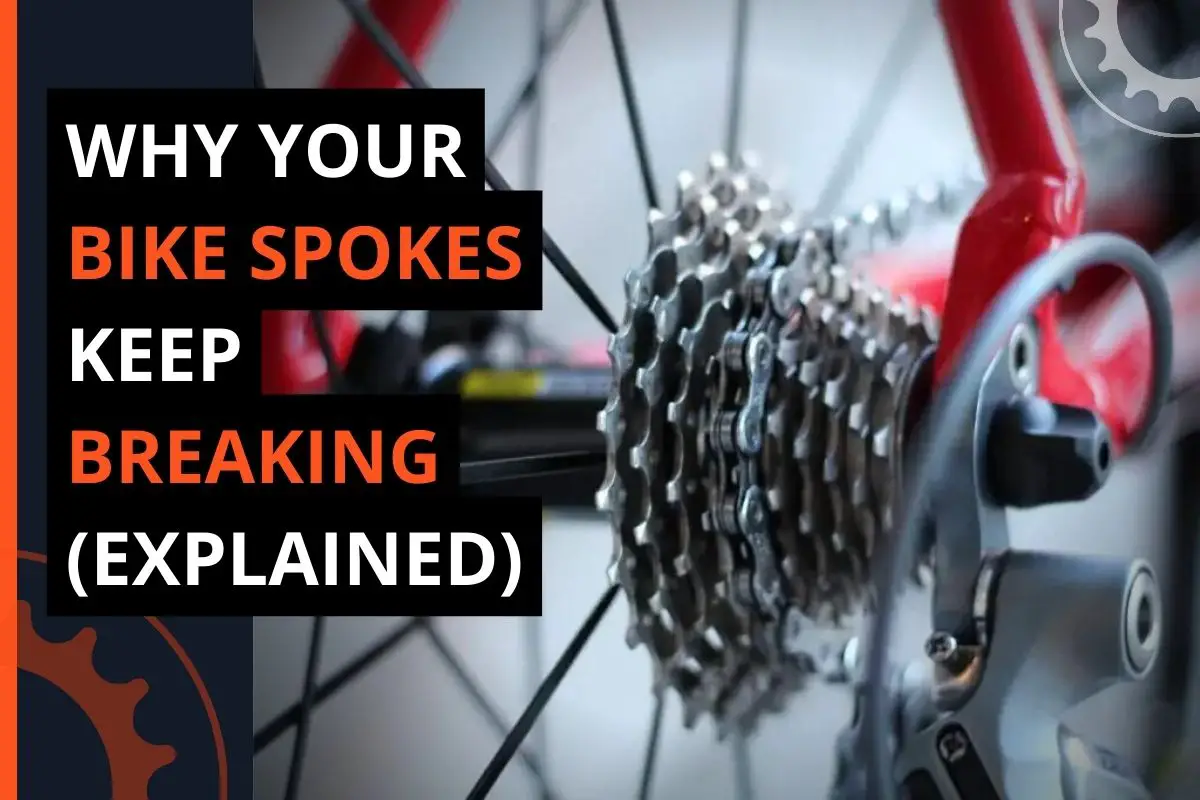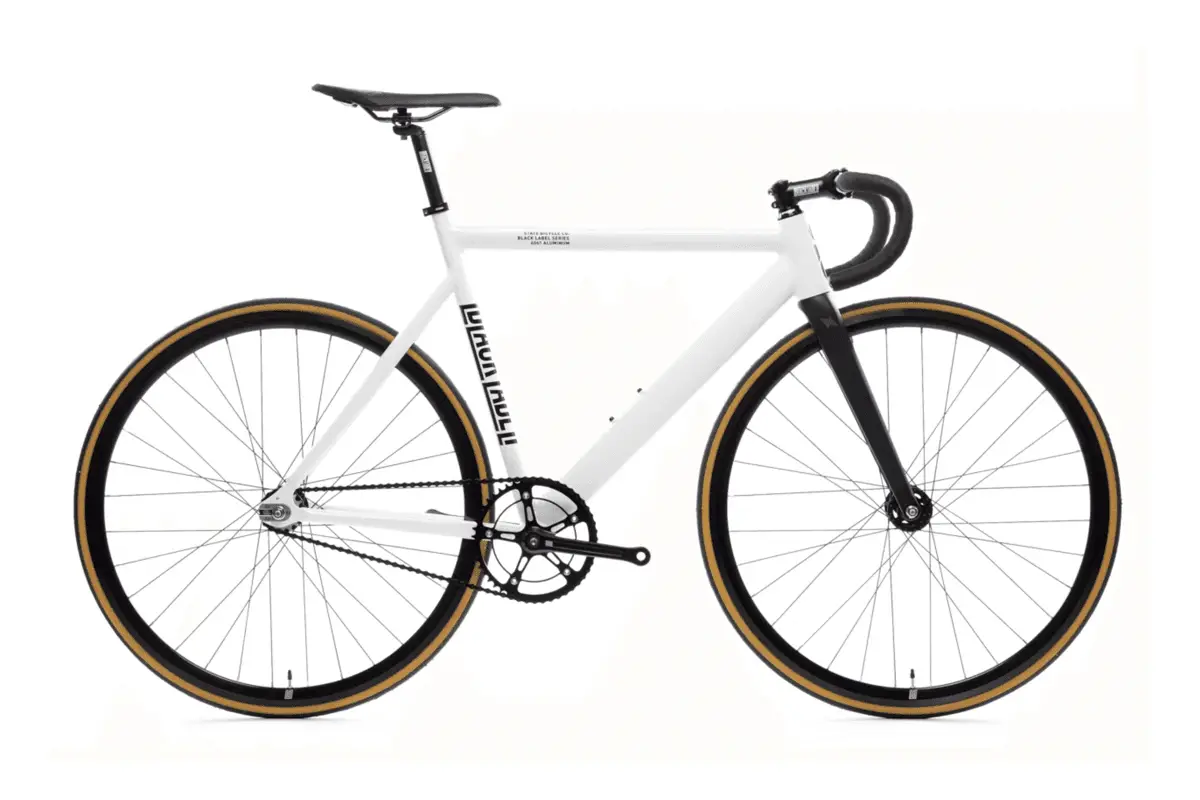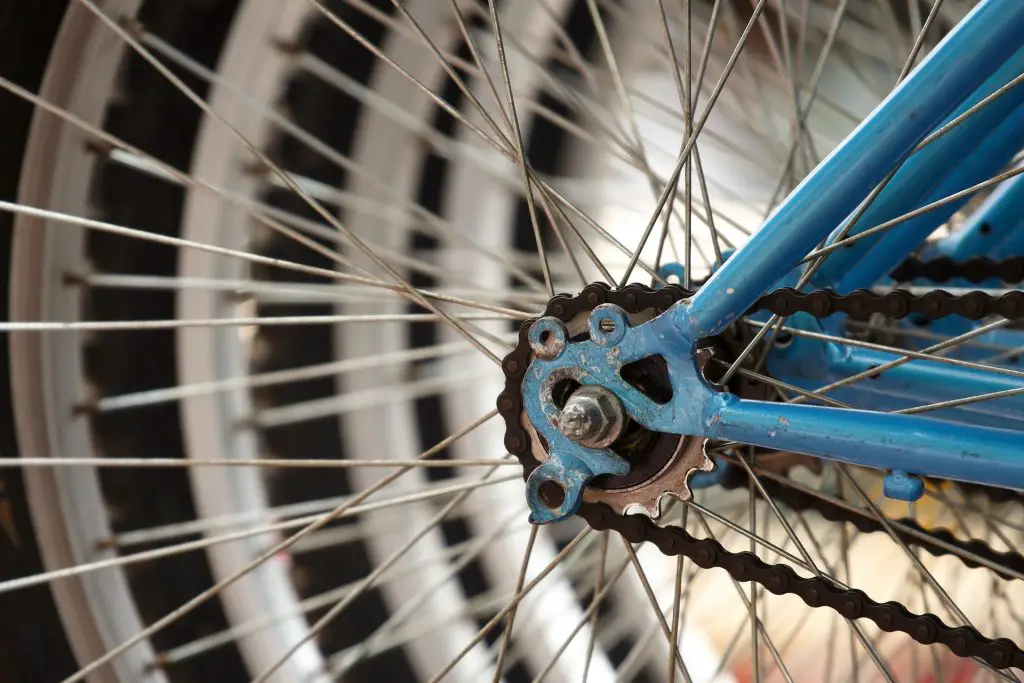Have you ever been pedaling away, enjoying a picturesque ride, when suddenly—snap! Another bike spoke bites the dust. If you’re tired of feeling like your spokes have some vendetta against you, fear not! This blog post is here to rescue you from the never-ending cycle of broken spokes. Think of me as your bicycle whisperer, but with fewer horse references and more emphasis on wheel stability.
In this blog post, we’ll reveal the main culprits of your broken spokes and unveil the secrets to preventing spoke breakage. Together, we’ll explore the wheel truth about why your bike spokes keep breaking—after all, knowledge is the best tool for keeping your wheels spinning smoothly. So, buckle up and get ready to embark on a journey toward happier, more reliable rides.
Why do your bike spokes keep breaking?
Your bike spokes may be breaking for a variety of reasons which may include:

1. Wear and tear
Bike spokes can break due to wear and tear, especially when the rider frequently hits curbs or potholes, doesn’t maintain the bike well, or the passenger is too heavy for that particular model.
2. Rough terrain
Riding on rougher terrains can deteriorate the rims faster, which in turn deteriorates the spokes faster.
3. Strenuous activities
Performing tricks, wheelies, jumping curbs, and even dropping the bike frequently can weaken the bike, especially the wheels and spokes. Wheelies place additional pressure on the back wheels and rims while jumping curbs and ramps can easily dent rims. If spokes are loose or weak in any way, they can break.
Spoke fatigue refers to the damage and eventual failure of the spokes on a bicycle wheel due to repeated stress and strain from use.
4. Poorly built wheels
A poorly built wheel might not be able to withstand the rider’s weight or riding style. If necessary, have the wheel rebuilt or replaced.
5. Corrosion or end of life
The spokes might be corroded or have reached the end of their useful life. In this case, you’re likely to continue experiencing spoke breakage until the wheel is rebuilt with all spokes replaced.
6. Spoke fatigue
Spoke fatigue refers to the damage and eventual failure of the spokes on a bicycle wheel due to repeated stress and strain from use. It is a common issue that can be fixed at home or replaced by an expert.
7. Spoke tension
Over-tensioned, improperly crossed spokes or spokes on the wrong side of the flange can cause them to break. Ensure that the tension of your spokes is not too high or unbalanced, as this may cause them to snap when riding on uneven terrain.
State Bicycle Co. Black Label 6061

State Bicycle Co. Black Label 6061
What other reasons could be causing the spokes to break?
Other reasons that could be causing spokes to break include the following:
1. Performing tricks, wheelies, or jumping curbs and ramps
These activities place additional stress on wheels, rims, and spokes, potentially causing damage and breakage.
2. Loose spokes
The presence of loose spokes results in other, properly tensioned spokes bearing more of the wheel’s load, leading to breakage.

3. Chain or derailleur misalignment
A misaligned chain or derailleur can cause the chain to derail, potentially damaging wheel spokes.
4. Rider weight and cargo
Overloading the wheel with excessive rider weight or cargo can subject spokes to stresses they are unable to withstand, causing them to break. Consider upgrading to more robust wheels designed to handle the additional stress.
How to replace your own spoke
Replacing a broken bike spoke can be a daunting task, but with the right tools and knowledge, it’s a task that any cyclist can accomplish. Here’s a step-by-step guide on how to replace your bike spoke.
- Remove the wheel from the bike. To replace a broken spoke, you first need to remove the wheel from your bike. This involves releasing the brake and removing the quick-release skewer or axle nuts. If you have a rear wheel, you’ll need to remove the cassette or freewheel first.
- Remove the tire, tube, and rim tape from the wheel. Once you have removed the wheel, take off the tire and tube. This will give you access to the rim and spokes.
- Remove both ends of the damaged spoke and nipple. Unscrew the threaded end of the broken spoke from the nipple and inspect the nipple flats for wear. If they’re worn, replace the nipple as well.
- Measure the new spoke. You will need to measure the length of the broken spoke, or alternatively, measure the length of one of the unbroken spokes and use this as a guide.
- Attach the new spoke. Thread the new spoke through the hub flange and into the corresponding hole in the rim.
- Place the nipple into the rim. You can screw the back of the nipple onto another spoke to help position it neatly into the rim. Tighten the nipple onto the new spoke until it has similar tension as the surrounding spokes.
- Reinstall the rim tape, tube, and tire onto the wheel. Put the wheel back on the bike, and if it’s a rear wheel, reinstall the cassette or freewheel.
For visual guidance on this process, you can also watch this video called “How To Replace A Broken Spoke” from the Mountain Bike Maintenance YouTube channel.
Conclusion
Well, folks, we’ve reached the end of the line—or should I say, the end of the spoke? So, did you learn the wheel deal about why your bike spokes keep breaking? And did I cover everything you wanted to know? Let me know in the comments section below—I read and reply to every comment.
Don’t keep all this spoke-tacular wisdom to yourself! Share this article with a friend who could use some help with their spokes, and make sure to explore my full blog for more tips and tricks on bike maintenance. Thanks for reading, and may you forever pedal with perfectly intact spokes!
Key takeaways
This article covered the reasons why your bike spokes keep breaking. Here are some key takeaways:
- Bike spokes can break due to wear and tear, rough terrain, strenuous activities, poorly built wheels, corrosion, or spoke fatigue.
- To address breaking spokes, check spoke tension, inspect spoke quality, examine wheel build, assess rider weight and style, maintain the bike, and address metal fatigue.
- Other reasons for spoke breakage include performing tricks, mountain biking on rough terrain, loose spokes, chain or derailleur misalignment, and rider weight or cargo overloading.
- Replacing a bike spoke can be done with the right tools and knowledge.















